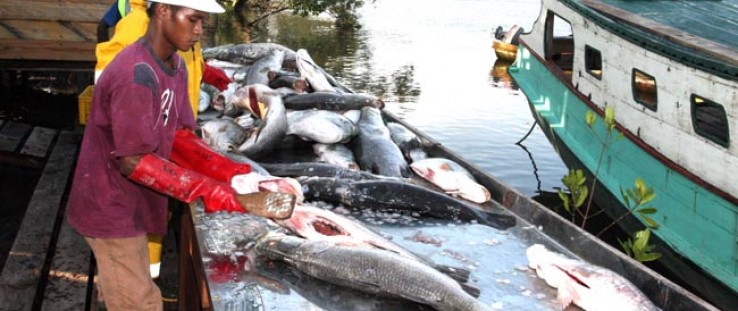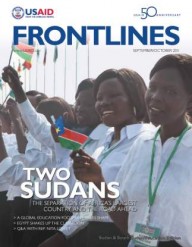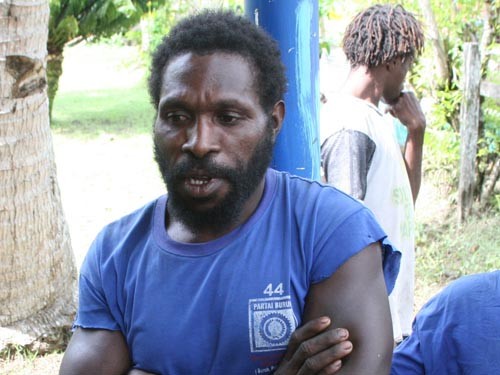 Fishermen clean their catch at a collection point off the Arafura Sea.
Roman Woronowycz
Fishermen clean their catch at a collection point off the Arafura Sea.
Roman Woronowycz
 Fishermen clean their catch at a collection point off the Arafura Sea.
Roman Woronowycz
Fishermen clean their catch at a collection point off the Arafura Sea.
Roman Woronowycz
KOKONAO, Papua – Petrus Kawani and his fellow villagers of Kokonao, located in the remote Papuan coastal lowlands, are undergoing a dramatic lifestyle change. The Kamorro people, who inhabit the coastal mangroves of southern Papua where Kokonao is located, subsisted for generations on the fish the Arafura Sea offered them. Today these superb fishermen are turning their know-how into successful businesses. With the help of USAID, they are securing livelihoods for themselves and their children.
Since 2005, USAID’s Agribusiness Market and Support Activity (AMARTA) project has successfully worked to develop agricultural businesses throughout Indonesia. In Papua in 2007, it formed the Papua Agricultural Development Alliance (PADA) in conjunction with PT Freeport, the mining conglomerate, and its charitable foundation, LPMAK, to make the business of fishing more efficient and lucrative for the coastal villages.
Earlier, lack of equipment and infrastructure had constrained the growth of the Kamorrans’ infant businesses. Now the Kamorran fishermen use contemporary equipment and receive a much better price for the fish they sell. This in turn has raised wages and profits.
“Before, we received IDR 5,000 (around $0.50 per kilo) for a small fish and IDR 10,000 for a big fish, weight didn’t matter. Today, we get IDR 8,000 ($0.80 per kilo), a much better price,” explained Kawani.
The success the Kokonao fishermen are enjoying is tied to the Maria Bintang Laut Cooperative with which they are now associated. PADA has helped members transform the Maria Bintang Laut Cooperative—originally supported by the local Catholic diocese—into an efficient and profitable enterprise for the people of 15 villages of West Mimika District of Papua. The villages are home to 1,267 families, 80 percent of whom earn their livelihoods from fishing. During October 2009-September 2010 the cooperative purchased 64,568 kilos of fish valued at $62,300.
PADA worked in Kokonao, which it chose as a hub of operations, and in the other villages to improve the efficiency of the fisheries value chain. Today in Kokonao, the cooperative operates an ice factory, which it constructed, and a buying station in addition to trading stations at five points along the coast. Ice processed from the factory—about 200 blocks daily—is provided to fishermen on credit and delivered twice weekly to each of the trading stations. Fish is collected at the stations and transported to a central collecting point.
After cleaning and processing, the fish is sent to the cool storage center in Timika, the economic capital of the region, until it’s ready for sale to the local market, hospitals, and PT Pangansari, the company that holds the large PT Freeport food concession. Under this concession, PT Pangansari provides meals, using the fish purchased from the cooperative, for PT Freeport employees.
The project has effectively nurtured livelihoods and economic growth here through timely technical assistance, encouragement, and regular visits to the village. Sustaining new business skills in a community without much experience has been challenging but is paying off.
The people of Kokonao appreciate the support. “Our lives have gotten much better. Now we have livelihoods and money to fix our homes, to buy kitchen appliances, and different foods,” said Kokanao fisherman Paulus Tariyaipa.










Comment
Make a general inquiry or suggest an improvement.